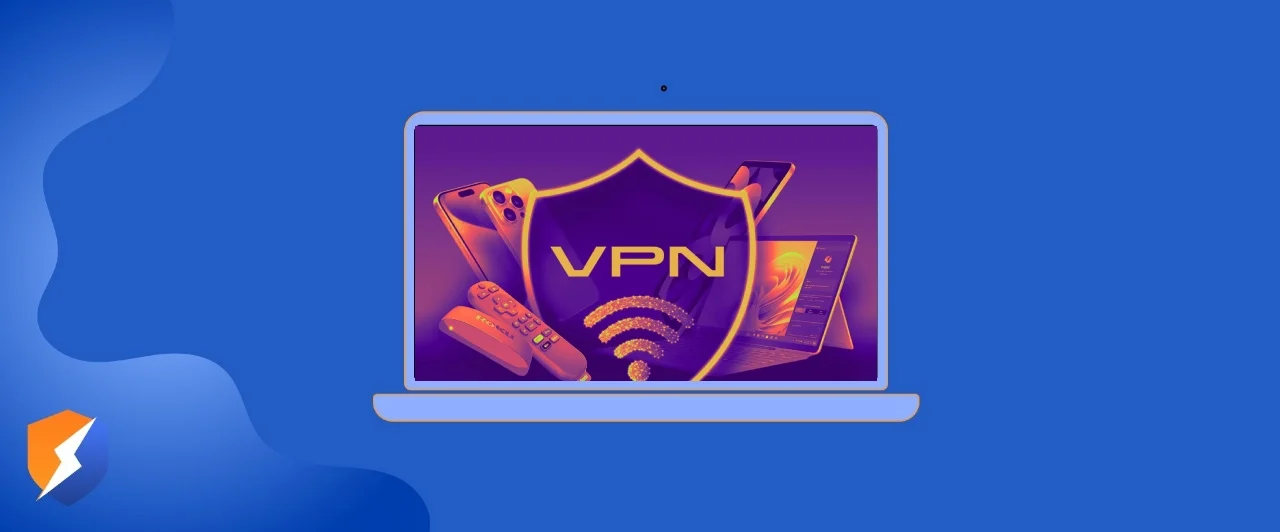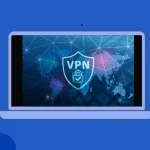- By Hammad Memon
- July 4, 2025
Table of Contents
Phishing attacks are becoming increasingly complicated. Now, cybercriminals have access to Large Language Models (LLMs), which means they can create even more believable and personalized emails and communications, especially making it even harder for users to notice when they are being scammed, even if they take precautions that day.
It’s very unlikely a VPN service will prevent you from getting phished, but it will help reduce the overall risk and protect your data. In this blog, we will examine how VPNs compare to AI-powered phishing attacks and whether VPNs actually offer any value against this emerging breed of phishing.
What are LLM-enhanced phishing attacks?
LLM-enhanced phishing attacks arise when cybercriminals use powerful AI tools such as GPT to fashion highly realistic phishing emails, fake sites, and social engineering traps. Today’s LLM models allow for the generation of messages that can be personalized to an individual, which can make the scam appear so authentic that it can be difficult to detect as malicious.
Furthermore, LLM-enhanced phishing attacks do not exploit software flaws — they target human nature and behavior, which puts businesses and individuals at heightened risk. Consequently, conventional security mechanisms, including firewalls and antivirus software, are rendered ineffective. Once cybercriminals are using LLMs, they have the ability to develop even more sophisticated phishing attacks to enable them to steal personal information or business information. Ethics, like the software vulnerability, do not appear to be under threat.
What is a VPN and how does it work?
A VPN (Virtual Private Network) makes an encrypted, secure tunnel between your device and the internet. This encryption scrambles your data online, so that hackers can’t hijack the data being sent and received from your device, especially when you’re on a public Wi-Fi network. Moreover, a VPN allows you to hide your IP address, which means that websites and malicious actors can’t easily track what you are doing online.
However, keep in mind that VPNs do not directly block phishing attempts. They cannot stop phishing emails from reaching your inbox, and they cannot stop you from visiting fake websites. Phishing attempts trick you by way of social engineering, not by intercepting your data between your device and the site you are visiting. VPNs do not typically detect those types of problems, so they do not block them.
How VPNs stack up against LLM-enhanced phishing attacks
VPNs are designed to improve your online privacy and secure your data, but when it comes to LLM-powered phishing attacks, they provide protection by limiting your exposure, rather than stopping the service from phishing you.
A VPN can hide your IP address and location and therefore make it more difficult for attackers to know where you are located and to spear-phish you based on that information. This does add to your protection against phishing risks based on location information, but LLM-enhanced phishing mainly focuses on social engineering- tricking you based on personal communication and believable messages. So its impact is limited.
In addition, a VPN protects you when utilizing an unsecured network by encrypting your internet traffic. While this protects you from being attacked using a vulnerability based on your network communication (wiretap or man-in-the-middle attacks), since the LLM phishing does not take advantage of that type of network vulnerability, this factor does not address the main issue.
In the end, VPNs have features that can be helpful in achieving a measure of privacy and keeping your data safe, but they do not address the fundamental social engineering strategy of phishing and its underlying event of trust. Maintaining the competency of protection from LLM-enhanced phishing attacks requires additional effort, vigilance, and a lifestyle change- Being suspicious of emails, multi-factor authentication, and a very powerful email security filtering from your IT department or provider.
Configuring your VPNs to mitigate LLM-enhanced phishing threats
As mentioned above, VPNs are not capable of blocking LLM-enhanced phishing attacks, but can be set up to minimize your exposure by securing your connection and masking your Identity. Here are some methods you can use.
- Use robust encryption: Always use VPNs that utilize AES-256 encryption or protocols like WireGuard or OpenVPN to help protect your traffic against interception.
- Use the kill switch: The kill switch will terminate your internet access if the VPN connection drops, which prevents accidents from occurring when you’re exposed on an unsecured connection.
- Maintain coverage on all devices: Install and configure your VPN on every device you use online—laptop, phone, suitcase multitasker—to prevent gaps in coverage.
- Utilize split tunneling: Run sensitive traffic (like online banking) through the VPN while running less sensitive traffic through your regular internet connection, resulting in less impact on performance.
- Use DNS and IP leak protection: This helps ensure that your physical IP address or browsing data doesn’t leak if your VPN connection drops.
While these measures provide layers of defense when combined with research, practices, and other forms of defense (anti-phishing tools, email filtering, or noticing social engineering tricks), actual interactions involving LLM-driven phishing will require additional forms of defense.
Real-Life Scenarios of LLM-Enabled Phishing
To understand just how risky these attacks can be, consider the case of a finance executive receiving a message from a so-called “CEO” needing an immediate transfer. The LLM-enabled email could not only be realistic-looking but also made to appear as if it were written in the CEO’s own writing style, referencing legitimate events or meetings directly from her own calendar. If the email is designed correctly, it would read like a note written by the executive. Another popular attack mimics an IT department’s request to reset login credentials, which often links to phishing pages that are indistinguishable from the real company front page.
Why VPNs Are Still Important Even If They Won’t Prevent Phishing
While VPNs are ineffective in stopping phishing emails from entering your inbox, it is questionable whether they can make phishing attempts more difficult. Using a VPN means that advertisers, hackers, or even data brokers will not be able to see your geographical location or where you go online. This will decrease the ability for LLMs to customize their scams, like inducing a sense of sociability or connection to the victims. In addition, when working from home or whilst travelling, a VPN is another layer of security—scenarios that traditionally have higher phishing attempts and malicious activities.
Combining VPNs with other security measures to defend against phishing
To successfully guard against phishing (especially the ever more advanced, AI-driven phishing), it is critical to make sure that in an otherwise wider security strategy you have also implemented VPNs.
Here’s how to create stronger defenses:
- Leverage anti-phishing software: Anti-phishing solutions exist that are able to scan email content for malicious links, attachments, and suspicious patterns, stopping threats before they ever reach you. When combined with a VPN, these are an important additional layer that provides protection against deception, not just data interception.
- Use multi-factor authentication (MFA): While not perfect, MFA will stop an attacker dead in their tracks even if they obtain your credentials. MFA is a second layer of verification (or a second factor) before providing access. The most common second factor is an SMS text delivered by the cell service, but using an app like Google Authenticator or physically validating with a hardware key, such as a YubiKey, is a better option to provide stronger security.
- Use browser protections: Most modern browsers are able to warn about suspicious websites because they utilize Google Safe Browsing and other services. When combined with a VPN service, a browser can better stop both phishing websites and data interception.
- Teach users: By combining a continuing education expense with periodic phishing simulations, users can learn to recognize and identify malicious emails, links, and fake websites. Never underestimate the value of continually educating your users on phishing and the fact that they are still the strongest defense you have against phishing.
When you combine these tools and habits with your VPN, you can produce a much better defense against even the more advanced phishing attempts.
VPNs provide some extra privacy and protection for data, but they cannot fully prevent LLM-based phishing attacks. LLM-based phishing primarily focus on social engineering and human manipulation in a way that a VPN or anonymity won’t help.
While VPNs can be used as part of an overall defense strategy with anti-phishing software, email filtering, multi-factor authentication controls, and user training.
The Future: Could VPNs Develop to Minimize AI-Generated Phishing?
The evolution of VPN technology may allow for future VPNs to leverage AI-based phishing detection that can analyze outbound and inbound traffic patterns to help identify suspicious actions. Researchers are exploring the integration of AI-driven VPNs with threat intelligence feeds to help detect links, emails, and forms that are examples of AI deception; however, this is still a developing field.
FAQs
No. A VPN encrypts your internet traffic and protects your privacy. It hides your IP address, providing more privacy and safety. A VPN will stop all attacks from threatening your network, but it can not stop phishing emails and fake websites. Phishing attacks rely on users remotely looking up information; phishing relies on tricking the person, not exploiting a network vulnerability, which begins with the first email they receive.
Utilize security tools such as anti-phishing tools, email filters, browser protection, and multi-factor authentication in conjunction. Stay aware of phishing tactics to know where you can expect phishing attacks to originate from and what they typically look like, allowing you to avoid them.
Somewhat. VPNs obscure your Identity and location, so it may make it harder to stalk you based on location or browsing habits. Phishing relies primarily on social engagement; keeping an eye out for phishing attempts is still extremely important when using a VPN.
There is no single tool that will be effective against phishing attacks. The best defence requires VPNs, security software, multi-factor authentication, browser protections, and ongoing training of the user to be aware of, recognize, and avoid phishing attempts.
Hammad Memon
Hammad is a passionate cybersecurity enthusiast and tech writer dedicated to making online privacy accessible to everyone. With a background in coding and digital security, he breaks down complex VPN and cybersecurity topics into easy-to-understand guides for Saviour VPN’s audience.












